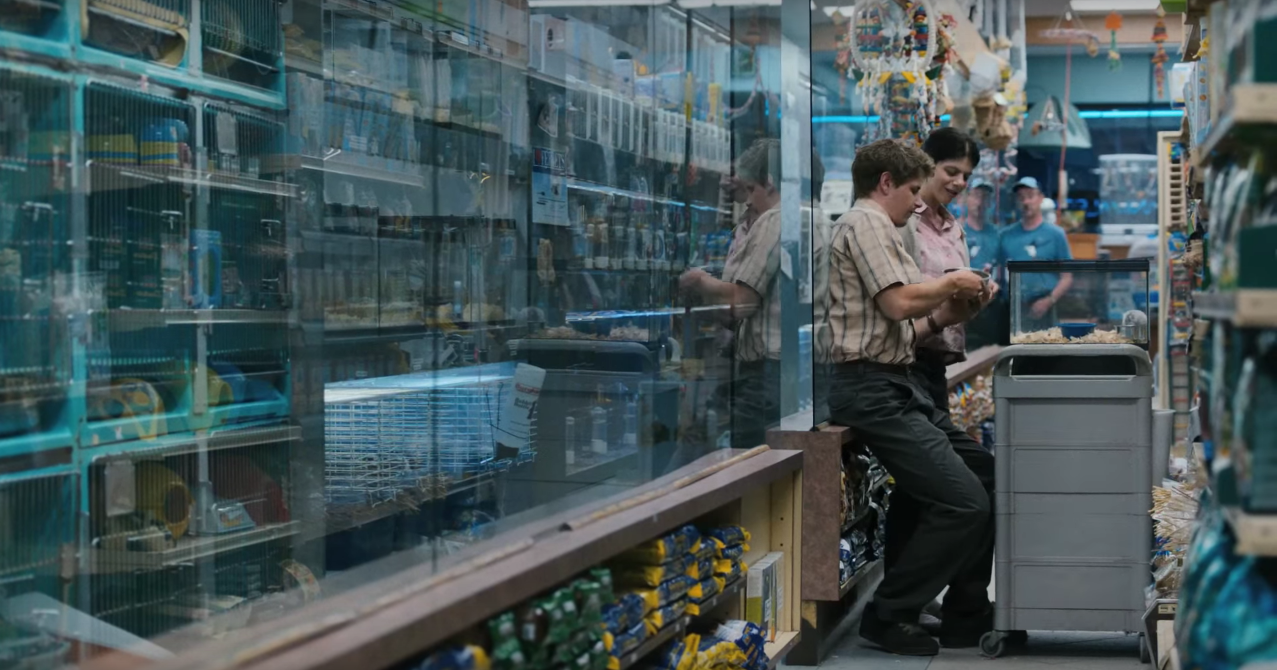We talked to this Concordia alumna about 2013’s Gabrielle
Gabrielle is a 2013 coming-of-age story by Quebec filmmaker and Concordia alumna Louise Archambault (Familia). It details the life of Gabrielle (Gabrielle Marion-Rivard), a 22-year-old woman with Williams Syndrome, as she participates in a choir of mentally challenged adults and enters a romantic relationship with one of her choir-mates. The film explores Gabrielle’s desire for independence, freedom and love with authenticity and care. We spoke with the director about what inspired her and how using non-professional actors helped add to the film’s realism.

The Concordian: How did you come up with the concept for this film?
Louise Archambault: I wanted to talk about happiness. I was inspired by [an intellectually disabled] woman I would see in my neighbourhood at the public pool. She always had someone accompany her; she never wanted to put on her swimming cap, but she was always singing and making these very happy sounds. She looked so relaxed and happy, but some people were uneasy with that. I wanted to talk about outcasts, people who were not in the mainstream, and their access to happiness and freedom. I wanted to talk about their independence and autonomy, and I wanted to show people to be, without judgement, open to differences.
C: The characters seem the happiest when they’re singing. What made you decide to incorporate music into the film?
L.A.: Since the beginning of time, humans have always gotten together to sing—it’s something that links us together physically and psychologically. Half of the script takes place in India. I was inspired by the organization Young Musicians of the World. It’s a school for deprived children, and they sing every day.

C: It’s not often that we see a character’s sexual desire explored in a film, let alone a character with mental disabilities. How did you approach it and why did you decide to include it in the film?
L.A.: Because it’s a real subject. Everybody has the right to happiness. When I met the people who inspired the film and the characters, it was very obvious to me that they have the right to love and be loved. Some people don’t want to see [intellectually disabled] people explore their sexuality—they think maybe they don’t know how, or they will be abused, or they will get pregnant and then what? These are [valid] questions, but they don’t realize they have a right to experience those things too.
C: The movie felt so realistic at times. I felt like I was watching a documentary. How did you achieve this level of authenticity?
L.A.: I observed a lot. Laurent [played by Benoit Gouin] was inspired by a real person who is in charge of a home similar to the one the characters live in—he’s gay, he’s involved with [the characters], he makes changes in their lives and gives them opportunities to be independent and autonomous.
The choir was not a real choir, but the members were [intellectually disabled] people who were chosen because they had talent. For example, [choir member Anthony Dolbec] takes singing classes with Gabrielle Marion-Rivard, and I observed them. When he sings and dances, his emotions come out and we feel it. I thought it was so beautiful. He chose the song [sung in the film] “Ordinaire” by Robert Charlebois. I have known that song forever, but when he sang it it took on a whole new [meaning] and I had to include it in the film.
C: Lastly, do you have any upcoming projects we can look forward to?
L.A.: I have a few scripts that still need to be financed, but I have been working on a lot of T.V. series with Radio Canada in the last few years … Coming up, I have Trop, which is a dramatic comedy. I fell in love with the subject, because it talks about mental illness. It’s about a 28-year-old woman with bipolar disorder. It’s a very moving subject but there are comedic situations and the character’s flaws are treated without judgement. It’s a delicate subject but it talks about what is considered to be taboo.”
Gabrielle will be screened by the Department of Theological Studies at the EV building, room 1.605, on April 8 at 5:30 p.m. The screening will be followed by a discussion with Louise Archambault.



